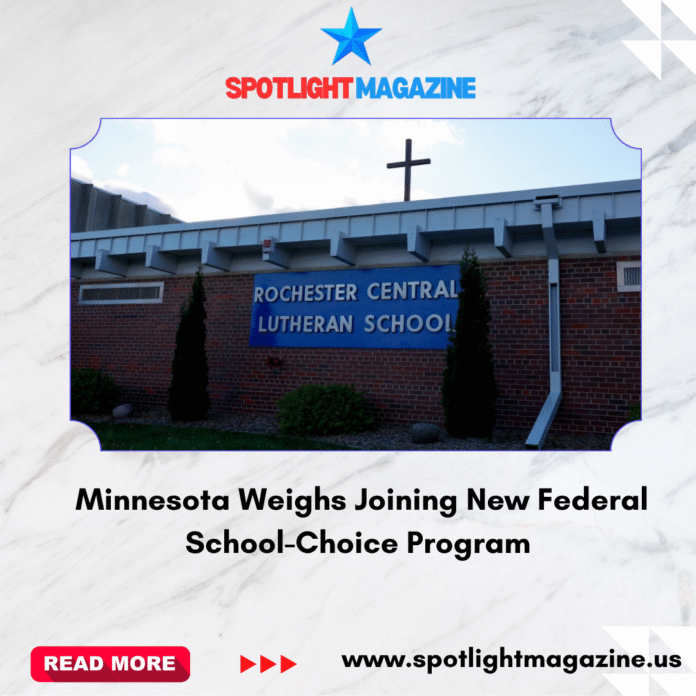Minnesota is still deciding whether to join a new federal school-choice program called the Educational Choice for Children Act, which has stirred both interest and concern across the state’s education circles. The program, approved earlier this year, offers a federal tax credit for education scholarships — the first of its kind in the U.S. — and is set to begin in 2027. States must choose whether to opt in, but Governor Tim Walz’s administration has yet to announce its decision. A spokesperson said in July that state agencies were still reviewing the bill and its potential impacts, but further inquiries to the governor’s office and the Minnesota Department of Education have not been answered.
The new program allows individuals and businesses to receive a dollar-for-dollar tax credit of up to $1,700 for donations to scholarship-granting organizations. These organizations, which must be federally recognized nonprofits, would use the donations to help families pay for educational expenses. Eligible families are those earning up to 300% of their county’s median income, and the scholarships could be used not only for private school tuition but also for other learning needs like tutoring or educational materials.
Supporters of the initiative say it offers flexibility and empowers families to make choices that best fit their children’s education. Among them is Charles Chaveriat, principal of Rochester Central Lutheran School (RCLS), who believes the program could make private education more accessible while preserving schools’ independence. “I was excited when I heard about it,” he said. “It’s not a traditional voucher system, but it gives families more control and support.” RCLS, which serves about 440 students from preschool through eighth grade, already has waiting lists, so Chaveriat doesn’t expect a major increase in enrollment. Still, he says the program would ease financial pressure on families already paying tuition.
Not all schools are ready to share their opinions. Rochester Public Schools and the Rochester Arts and Sciences Academy declined to comment, while other local private schools and the Diocese of Winona-Rochester, which oversees Rochester Catholic Schools, did not respond to requests.
Advocacy groups, however, are taking clearer positions. Lee McGrath, executive director of Opportunity for All Kids (OAK), strongly supports the program, calling it a breakthrough for both public and private education. “This is the most fantastic program to come out of the federal government in decades,” he said. “It allows Minnesotans to donate to scholarship organizations that benefit students in all types of schools.”
On the other hand, critics worry that the program could widen inequality. Monica Byron, president of Education Minnesota, the state’s largest teachers union, argues that private schools can be selective about who they admit, even if scholarships make them more affordable. “Public schools accept all students, from every ZIP code and background,” she said. “Private institutions still decide who to accept, so there’s no guarantee that every family will benefit equally.”
As Minnesota continues to weigh its options, the debate reflects a broader national question about how to balance educational choice with fairness. Supporters see the tax-credit scholarships as a way to empower families and improve access to diverse learning opportunities. Opponents fear it could divert attention and resources away from public schools that serve all students. With 2027 still a few years away, Minnesota’s final decision could help set the tone for how other states approach this new federal initiative.


